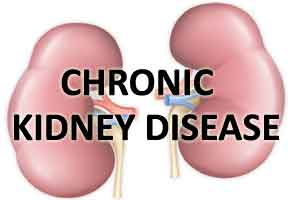- Home
- Editorial
- News
- Practice Guidelines
- Anesthesiology Guidelines
- Cancer Guidelines
- Cardiac Sciences Guidelines
- Critical Care Guidelines
- Dentistry Guidelines
- Dermatology Guidelines
- Diabetes and Endo Guidelines
- Diagnostics Guidelines
- ENT Guidelines
- Featured Practice Guidelines
- Gastroenterology Guidelines
- Geriatrics Guidelines
- Medicine Guidelines
- Nephrology Guidelines
- Neurosciences Guidelines
- Obs and Gynae Guidelines
- Ophthalmology Guidelines
- Orthopaedics Guidelines
- Paediatrics Guidelines
- Psychiatry Guidelines
- Pulmonology Guidelines
- Radiology Guidelines
- Surgery Guidelines
- Urology Guidelines
TAVR in End-stage renal disease has high mortality and bleeding risk: JACC

End-stage chronic kidney disease, CKD patients who go for Transcatheter aortic valve replacement, TAVR are at a significantly higher risk of hospital mortality and bleeding, revealed a study published in Journal of American College of Cardiology.
The study outlined the outcomes of TAVR in patients with end-stage kidney disease compared to patients without renal disease as prior studies have demonstrated adverse effects of aortic valve replacement, AVR in ESRD patients.
The authors analyzed data from the Society of Thoracic Surgeons (STS)/American College of Cardiology (ACC) TVT (Transcatheter Valve Therapies) registry on all 72,631 patients with severe aortic stenosis (AS) treated with TAVR. The authors found 3,053 (4.2%) patients had ESRD who were compared with patients who were not on dialysis for demographics, risk factors, and outcomes.
Key findings of the study
- Compared with the nondialysis patients, ESRD patients were younger (76 years vs. 83 years; p < 0.01) and had higher rates of comorbidities leading to a higher STS predicted the risk of mortality.
- ESRD patients had higher in-hospital mortality, although the observed to expected ratio was lower.
- ESRD patients also had a similar rate of major vascular complications, but a higher rate of major bleeding.
- The 1-year mortality was significantly higher in dialysis patients.
The authors conclude that patients undergoing TAVR with ESRD are at higher risk and had higher in-hospital mortality and bleeding, but similar vascular complications, when compared with those who are not dialysis dependent. The 1-year survival raises concerns regarding diminished benefit in this population. TAVR should be used judiciously after full discussion of the risk-benefit ratio in patients on dialysis.
Chronic kidney disease (CKD) and end-stage renal disease (ESRD) are emerging public health problems in developing countries, and need changes in health-care policy. From the above study, it is evident that TAVR holds a significant risk for patients with end-stage renal failure. However, some patients obviously derive advantage from this procedure.
For reference, click the link

Disclaimer: This site is primarily intended for healthcare professionals. Any content/information on this website does not replace the advice of medical and/or health professionals and should not be construed as medical/diagnostic advice/endorsement or prescription. Use of this site is subject to our terms of use, privacy policy, advertisement policy. © 2020 Minerva Medical Treatment Pvt Ltd